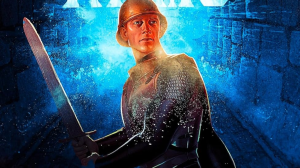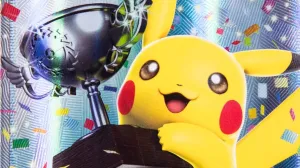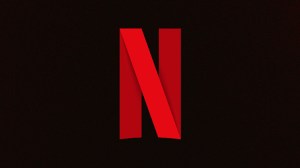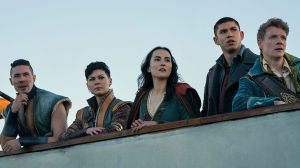With the main antagonist seemingly dying at the end of the original film, developing a followup to 2009’s Orphan was no easy feat, with the filmmaking team opting to instead turn back the clock to explore the earlier years of the deadly Esther, which included bringing back original star Isabelle Fuhrman to reprise her role in Orphan: First Kill. Despite the logistical challenge of using an adult actor to play a character who could pass for a child, director William Brent Bell was no stranger to tackling ambitious projects, as evidenced with films like The Devil Inside and The Boy. Orphan: First Kill lands in theaters, on Digital HD, and on Paramount+ on August 19th.
Videos by ComicBook.com
The new film is described, “Esther’s terrifying saga continues in this thrilling prequel to the original and shocking horror hit, Orphan. After orchestrating a brilliant escape from an Estonian psychiatric facility, Esther travels to America by impersonating the missing daughter of a wealthy family. Yet, an unexpected twist arises that pits her against a mother who will protect her family from the murderous ‘child’ at any cost.”
ComicBook.com caught up with Bell to talk developing the prequel, challenges he faced, and the future of other franchises he’s taken part in.
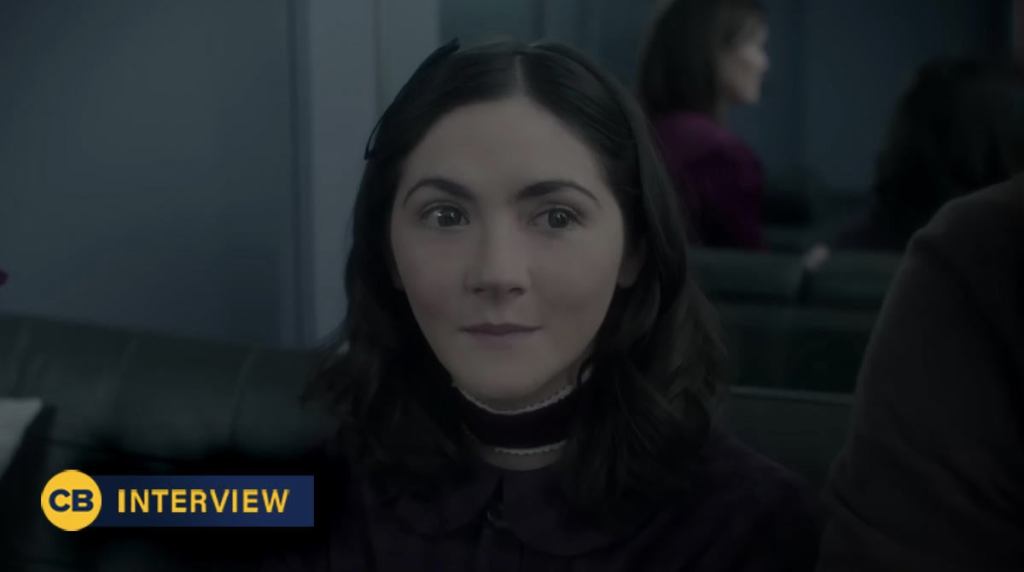
ComicBook.com: From concept to execution, all across the board, it’s such an exciting thing, especially given how much audiences loved the first film. When did you realize, when you got involved in this project, you might actually be able to pull this off? Was there a proof of concept that you did? When did you have that confidence of, “No, this is really going to work and we think audiences are totally going to be into it,”?
William Brent Bell: For me, I felt that way from the beginning. I guess you could say, I felt that way from the moment I met Isabelle, which was right after we announced the movie. She reached out to me and we met and when she walked in, I was like, “Oh wow, she looks the same, just 15% scaled up,” whereas I would’ve looked totally different. I was like, “Okay, this is crazy,” and then she was so passionate about it because, had she not been passionate about doing it, I never would’ve tried to drag her through this project. It would’ve been a nightmare for everybody.
We did multiple proof of concepts or proofs of concept, whatever that is, starting with the storyboard sequence where the storyboards were very specifically designed to be done in a way that would be the way it is in the film, practically done and not just try to throw $100 million at it and make it a full CG movie.
And then COVID was our friend because people began to get worried that it was going to cost too much money and I didn’t think it would, and COVID slowed things down to where we were able to put together a photo shoot with another model and we aged her down from like 33 to 16, I think you’d say. They were like, “Wow, that worked and you didn’t do any Photoshop or anything,” and then we were able to do a full one-day shoot with Isabelle in costume, a teaser trailer to the movie as proof of concept.
It was right until the final second, it was like, “Brent, we have to make the decision right now. We have to see this footage, otherwise we’re going with this actress.” When everybody saw it, it was a moment of quiet and then, “All right, we’re doing it.” But at the end of the day, we were so focused on how to do it that I don’t think we ever exactly questioned whether or not it would work. When I had somebody watch the first cut of the movie before we had done any post-production work, any cleanup or anything, they just were like, “Oh yeah, after five minutes, I wasn’t even thinking about it. I just forgot.” So it was like, “Okay.” It’s fascinating, even to me.
The script was out there before the project was officially announced and in speaking with Isabelle and her passion after knowing the script and that story, from the time you got on board and you have that script to actually shooting, did that script undergo many changes, whether it be practical things like, “We just have to move this scene that would take place in this environment to this environment because we’re going to be able to do the forced perspective,” or even bigger story beats? Did the script itself undergo much of an evolution once you got on board?
Honestly, I would say no. Obviously things always change with the script in every movie and we’re fine-tuning and developing and honing in on what the story is we really want to tell and how we want to portray her character. There were bits in there that … you know, her riding on a bike, and I’m like, “Sure, we can do it and we could do with a double,” but at the end of the day it was more about the psychology for a character that continued to be honed in on the script. I can’t really think of much that we had to reverse engineer to fit the fact that it’s her. If anything, and there’s something I don’t think people realize, the movie probably would’ve been a lot more difficult with a child.
Not only is it harder to shoot with less hours in the day, but she’s playing an adult pretty much in the whole movie. Julia [Stiles] was so relieved when we signed, or she said she was, when we signed Isabelle on because she was like, “I was wondering how I was going to play all these scenes against a child.” In a way, it was like it’s her playing a character she’s so great at and now she’s 24 playing the adult version of that character. It worked out pretty well.
In the original movie, like with any horror movie involving a young character doing horrendous things, there’s an inherent shock value to that. Now in this, you have an adult and the audience knows that she is an adult, so there are still visually striking and unsettling sequences, but the audience isn’t conceptually immediately triggered in the same way as if a child was committing those things. When you’re shooting these things, did you feel either a freedom or a pressure to take some of the more grotesque or unsettling imagery to another level or was that not even a thing on your radar at all?
I would say it’s always on the radar in a way, but with her, now that we’re in on the secret and we’re playing with the audience expectations to some degree, and we’re also playing around with what we know what she’s capable of so we’re anticipating, is she setting a trap for somebody right now and then she’s going to do something horrible that they would never expect, but now we know she might. So that’s a lot of fun and, in the story, there’s a bit of one-upmanship going on through part of the story. I guess you would say her hands were tied, she couldn’t completely be as violent as maybe she would normally be.
As you know, the script was always this way, that we’re rooting for her, and so the violence in this is a bit more reactionary and she’s less the aggressor, so it’s a bit different. But at the same time, we wanted to make sure when there were moments like that, that we had the right amount of fun with them. The battle royale between them, which was hinted at in the script, but it was like, let’s just have fun. As long as these two actors are excited to get dirty, let’s have fun with that, so that stuff was just so great with this movie.
Especially with things like forced perspective and body doubles, you have to do some pretty serious preparation to shoot any scenes with the blocking and where the cameras are going to go. So when it came to all of that, did you feel rewarded because on set, everything was set up so precisely that you had that many fewer factors out of the equation and you could just focus on performances and dialogue or did it feel more constrictive or more limiting knowing, “I’d really love to move the camera over this way, but it’s probably just not going to work,”? Was it more freedom or more challenging with all that prep work involved?
It was definitely more challenging, but doing all that prep work to where everybody involved understood the challenges that would come up if we did organically move the camera or choose to do it at the last minute, which, those types of things happened.
Everybody was prepared to do it because we had done the preparation to get there. So whether it be stunts, cinematographer [Karim Houssein], he was on the movie so early and then when COVID slowed down the preparation, we just spent three hours a day developing every shot of the movie that we wouldn’t have had that extra amount of time had we not been shut down for several months and it allowed us just to get out ahead of that.
It’s those things where, as long as you learn the rules and we all understand what our limitations are and everybody’s clear with that, then we can start breaking those rules. And I think we had a lot of luck with that with this.
When you look back on the experience, this is a two-part question and it might be the same answer for both parts, but did you have a favorite sequence to shoot and also was there a particularly most challenging sequence to shoot?
Maybe it’s that fight, it was both fun and challenging for obvious reasons, but by then, though, we were pretty well in our groove.
I mean, I think the sequence in the train station was very early in the shoot and it was a big location and we were still early in some of the trial and error of the ways we were having her move and stuff using machines and things. It was extremely challenging to get that sequence put together.
I think for me, as a storyteller, probably one of my favorite scenes was when Julia’s character, Trisha, is first introduced to Esther at the embassy and it was a beautiful location and, tucked away in the corner, was this grand piano. I was like, “Is that a piano?” and they’re like, “Yeah.” I was like, “Well, let’s pull that out and let’s have her behind the piano and have her tinkering on the piano,” which we know she’s an amazing pianist, but she’s pretending.
It was a great way to reveal her to Julia and a great way for both of these characters to, at that point in the story, are they going to buy, is Julia going to go, “Who the hell’s this?” and Esther, she’s probably freaking out on the inside, “Is this woman going to say it’s not my daughter?” I loved that whole scene of pulling them together for the first time.
Not only Isabelle’s passion for the character, but also just audience passion for the character over the years, Orphan is definitely a cult hit, has a cult following, and you got to bring to life your own cult-favorite character with Brahms, with The Boy. Clearly, I don’t think anyone predicted how beloved that freaky doll would become. I loved that twist from the very first time I saw it. Now that there’s more Orphan coming back unexpectedly, do you think you’d ever want to return to Brahms’ world? Could there be a third Brahms or a different point in time for that narrative to explore that audiences might not expect?
I think so. I think when we made the first movie, the assumption was if we continued the story, it would’ve been the story of Brahms, the guy in the walls, like a slasher killer. And then, as time went on and the producers saw how the doll had become in the zeitgeist with [Jared] Kushner, in particular, and so it was like, “Okay, we’ll focus on that.” But in a way, I feel like a movie, it’s either you have a great standalone film or you probably need a trilogy to really round out a character. So the second film in that series focused on the doll, and I think a third film would 100% focus on Brahms, the guy. So yeah, I mean, for me as a writer, as a filmmaker, as a director, I fall in love with these characters after 90-100 minutes and I’m just getting to know them. So for me, I very much want to continue exploring those stories as a fan.
I’d be remiss if I didn’t mention that I have explained to roughly 1,000 people the final moments of The Devil Inside and what you were going for with the whole like, “To learn more about this…” to commit to the idea of it being a documentary, I have defended that to so many people. I just wanted you to know there are people out there who totally got what you were doing.
You know, I don’t know that I’ve ever heard anybody say anything like that so I appreciate that. But I do understand why it pissed people off at the same time.
Orphan: First Kill lands in theaters, on Digital HD, and on Paramount+ on August 19th.
This interview has been edited for length and clarity. You can contact Patrick Cavanaugh directly on Twitter.





